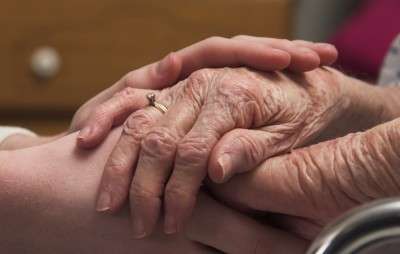Innovation in elder-care on the horizon

When it comes to senior citizens, it can difficult to strike a balance between maintaining an independent lifestyle and ensuring that help will be there when needed. Mobile phones aren't always within reach, and in some instances elderly people can find themselves lying on the floor, alone, injured and unable to get back on their feet. Professor Ingrid Zukerman from Monash University and her team are working on a non-intrusive home monitoring device, which sends out alerts to carers in the case of abnormally long periods of inactivity.
Housed in small boxes, the monitoring devices detect motion, vibration, light and temperature amongst other things, and are designed to be plugged into power points in the most-often used areas of the house. The system is also designed to be unobtrusive, and doesn't require cameras to be installed or the user to wear or carry around a device.
One of the challenges facing Professor Zukerman and her colleagues, Associate Professor Andy Russell, Dr Masud Moshtaghi and Dr Kai Zhan, is finding a balance between delays in identifying lengthy periods of inactivity and the frequency of false alerts.
"Typically, shorter waiting times imply more false alerts and vice versa. To alleviate the false alert problem, we plan to implement an interim step, where the system could ask the person being monitored to wave if they're okay. This would activate a motion detector, and avoid sending a false alarm to a carer. If, however, the system was unable to detect a response for some time, an alert would be sent - first to a carer and perhaps then to a medical service," Professor Zukerman said.
The project may also have broader applications outside of private homes. St Vincent's Hospital in Sydney and Melbourne and the aged-care facilities Vasey RSL Care and Old Colonists have all expressed interest in the research. According to Associate Professor Steven Faux, Director of Rehabilitation and Pain Medicine at St Vincent's Hospital Sydney, monitoring the movements of patients in nursing homes and hospital rooms would be of great benefit to protect the patients' safety.
"Currently, we rely on passing staff members to discover patients or residents after they have experienced an incident. The value of the sensors is that the movements can be detected without affecting a patient's privacy, allowing staff to monitor movement and potentially dangerous situations," Professor Steven Faux said.
Professor Zukerman received a grant from the Australian Research Council (ARC) to undertake modelling of the daily habits of seniors, and develop algorithms that detect changes due to functional decline or the onset of illness, in addition to instantaneous events, such as falls, which the monitoring system is already capable of detecting. She also hopes to determine whether and how best to communicate with seniors and carers to deliver information and alerts, testing the effectiveness and acceptance of the new technologies with a diverse population of seniors and carers.















